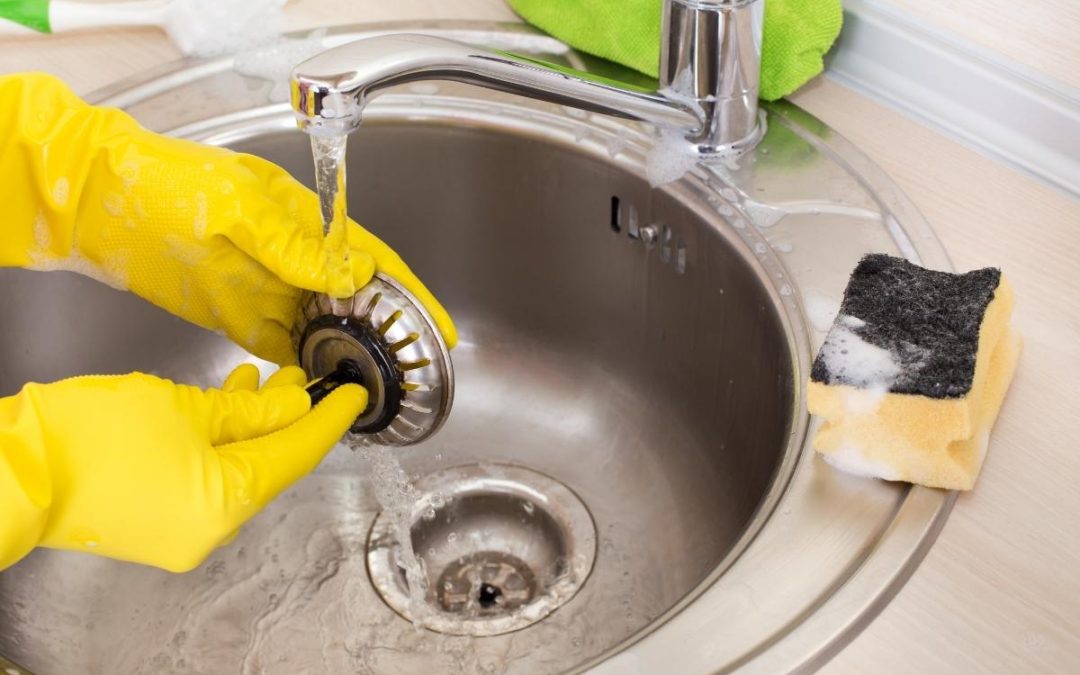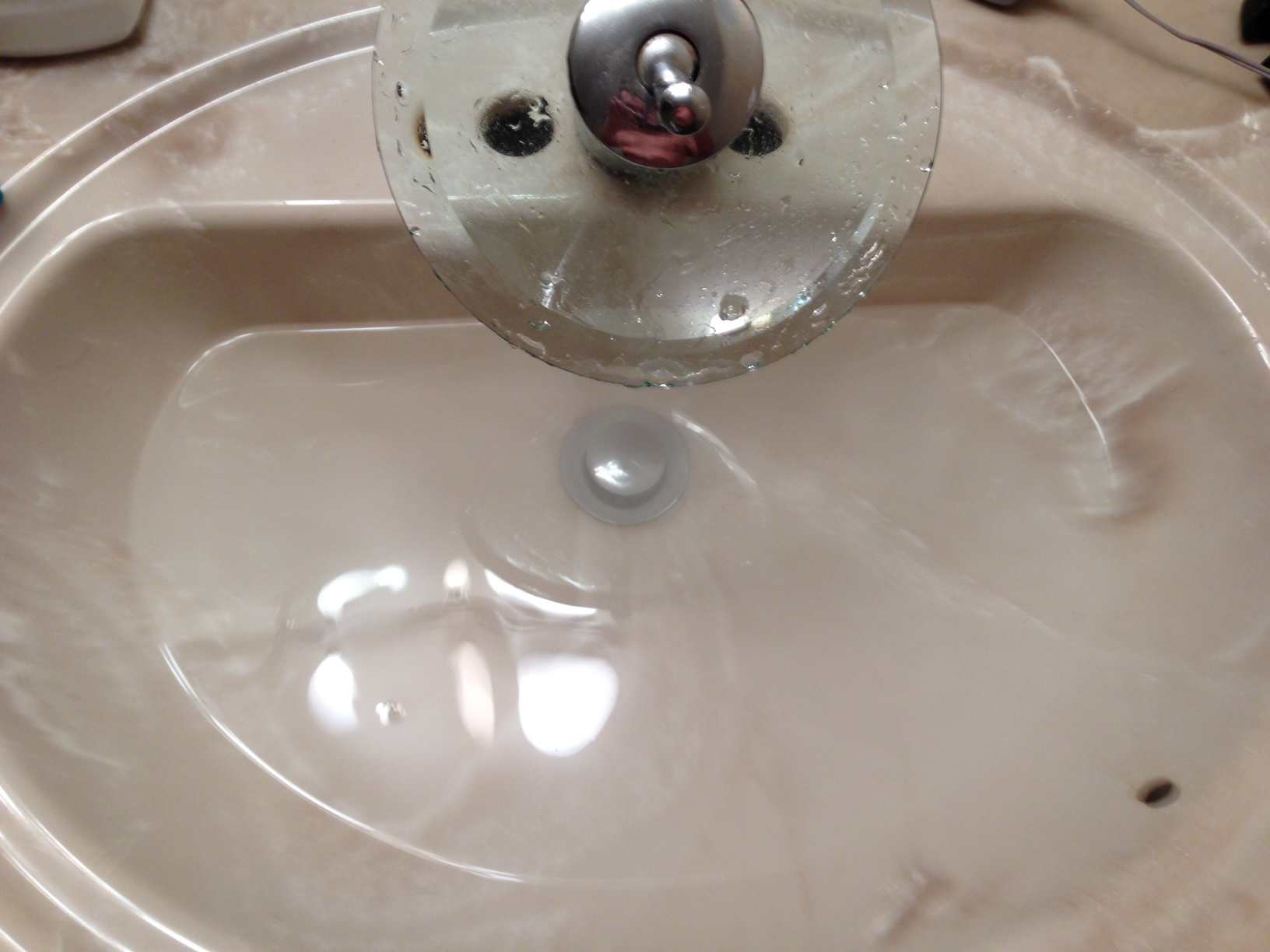The article author is making a number of good observations on Solved! How to Fix a Slow Sink Drain in general in this great article which follows.

Introduction
We've all been there: You're cleaning your teeth or cleaning your hands, and you see the water pooling in the sink. As opposed to quickly swirling down the drain, it lingers, transforming your once-refreshing morning regimen right into a miniature overload scene. A slow-draining sink isn't simply aggravating; it's frequently a sign of larger pipes problems hiding underneath the surface. The bright side is that most slow-draining sinks can be repaired with a little knowledge, a couple of basic tools, and some patience. Prepared to tackle this task head-on? Allow's roll up our sleeves and dive right in.
Understanding the Sources Of a Slow-Draining Sink
Before you begin poking around in your pipelines, it helps to understand what could be creating the downturn. Recognizing the origin makes it easier to pick the ideal repair.
Typical Perpetrators Behind Slow Drainage
So, what's blocking things up? Typically, it's a blend of day-to-day particles-- assume hair, soap residue, toothpaste deposit, and remaining food fragments. With time, these little bits build up and cling to the pipeline walls, progressively narrowing the passage and making it harder for water to travel through. Sometimes, natural resource from tough water can likewise contribute to the substance, developing the ideal tornado for stubborn obstructions.
When is it Time to Act?
If you see the water draining pipes slower than common, it's an excellent concept to step in sooner instead of later on. Waiting as well long might cause complete clogs, undesirable smells, or perhaps pipe damage. If the water takes greater than a few seconds to clean out after turning off the faucet, consider it a red flag and prepare to place on your DIY hat.
Devices and Products You'll Need
The right devices make all the distinction. Fortunately, you will not require a totally stocked plumber's van to get the job done.
Essential Tools for Do It Yourself Repairs
A bettor is your best starting factor. A tiny, sink-sized bettor creates suction that can displace minor blockages. For more persistent clogs, a drain snake (in some cases called a plumbing professional's auger) works wonders. A set of handwear covers, a flashlight, and perhaps a pair of protective safety glasses are additionally handy.
Recommended Cleansing Solutions
Light recipe soap and warm water can help break down greasy accumulation. A mixture of cooking soft drink and vinegar is a reliable natural remedy, and chemical cleansers offer an even more environment-friendly approach. Keep chemical drainpipe cleansers as a last option, as they can be harsh on your pipelines.
Safety And Security First: Preventative Measures and Preparations
Prior to you launch into unclogging setting, think of security. You're handling potentially dirty water and particles, so slip on a pair of handwear covers. If you're utilizing chemical cleaners, guarantee the room is well-ventilated and follow the directions on the tag.
Safety Gear and Office Setup
Set some old towels or cloths around the sink area to capture sprinkles. Remove any kind of items that might enter your method, like soap dispensers or toothbrush owners. Ensure you have good lights-- get hold of a flashlight if needed.
Step-by-Step Guide to Fixing a Slow-Draining Sink
Now, allow's enter into the nitty-gritty. This step-by-step process will certainly direct you via straightforward methods to recover your sink's drainage.
Action 1: Eliminate and Tidy the Stopper
Commonly, the stopper (that small plug you push down to block water) is the initial offender. Remove it very carefully and clean off any kind of hair or crud entraped around its base. Rinse it extensively prior to placing it back in place.
Action 2: Make Use Of a Bettor to Displace Debris
Got that plunger prepared? Placement it over the drain and offer it a few firm pumps. The idea is to produce suction that can loosen any type of obstruction. If you see littles particles floating up, you're on the appropriate track.
Step 3: Try a Drainpipe Serpent or Wire Hanger
If the bettor does not suffice, it's time to highlight the drainpipe snake. Gently feed it into the drain and twist as you go. You could feel some resistance-- that's likely the obstruction. Keep twisting and drawing until you remove the obstruction. If you don't have a drainpipe snake, a straightened cable hanger can operate in a pinch.
Step 4: Apply a DIY Drain Cleaner
A natural cleaner made from cooking soda and vinegar can break down recurring gunk. Put half a cup of baking soda right into the drain, adhered to by half a mug of vinegar. Let it fizz for about 15 minutes, after that flush with warm water. This chain reaction often does marvels for small obstructions.
Step 5: Reassemble and Check the Sink
Placed every little thing back together and run the tap. Does the water currently swirl down the drain at a reputable speed? If yes, give yourself a pat on the back. Otherwise, do not anguish-- there are still a couple of even more dress up your sleeve.
Alternative Approaches for Stubborn Clogs
Not all blockages are created equal. If your sink still rejects to comply, take into consideration these alternative remedies.
Baking Soda and Vinegar Approach
We currently touched on this, however it deserves noting once more. This gentle, eco-friendly technique is much safer than chemical cleaners and commonly quite effective.
Enzymatic Drainpipe Cleansers
Enzyme-based cleansers use all-natural germs to digest organic matter. They're an exceptional choice if you're aiming to stay clear of extreme chemicals. Simply bear in mind, they may take a bit longer to work their magic.
Chemical Drainpipe Cleaning Company: Benefits And Drawbacks
Chemical cleansers can blast with difficult clogs fast, yet they're not without downsides. They can create warm and fumes, damage pipelines if utilized exceedingly, and position ecological risks. Use them sparingly, and always adhere to the instructions thoroughly.
Safety Nets to Maintain Your Sink Flowing
Avoidance is the best cure. By adopting a couple of straightforward behaviors, you can keep your sink from reducing to begin with.
Regular Cleaning Behaviors
Wipe down the sink basin and component area routinely. Get rid of hair or food bits prior to they have an opportunity to wash down the drainpipe.
Preventing Dangerous Materials Down the Drain
Think twice before disposing coffee grounds, grease, or coarse veggie scraps down the sink. These offenders hold on to pipeline wall surfaces, creating obstructions in time.
Routine Upkeep Checks
Schedule a fast monthly inspection. Run hot water via the sink for a few mins, taking notice of the circulation. If it appears slow-moving, act fast prior to it ends up being a full-on blockage.
When to Call a Professional Plumbing
Sometimes, no matter exactly how hard you attempt, that obstruct simply won't budge. That's when it's time to generate the pros.
Signs That Suggest an Extra Serious Problem
If your sink drains pipes gradually regardless of multiple efforts, or if you discover water backing up in various other components (like your shower or bathroom), you may have an extra major plumbing issue lurking much deeper in the system.
Balancing Do It Yourself Initiatives with Specialist Help
While DIY can conserve you cash and offer a feeling of achievement, there's no shame in calling a specialist. A professional plumber can assess your entire pipes setup, making sure there's no underlying damages or long-lasting problem that can cost you much more in the future.
Comparing Expenses and Long-Term Solutions
Prior to making a decision, consider the big picture. An economical, quick fix could solve the problem temporarily, however buying a much more irreversible option could save you money and anxiety in the future.
Weighing the Expenses of DIY vs. Professional Repairs
Do it yourself fixes usually cost bit greater than the rate of a plunger or a container of baking soft drink. Professional solutions, on the other hand, come with a cost however might stop repeated problems and costly repairs later on.
Investing in Top Quality Fixtures and Upgrades
If your sink's design contributes to frequent blockages, it could be worth upgrading to higher-quality fixtures or modifying the plumbing design. Consider this an investment in your home's performance and comfort.
Verdict
A slow-draining sink can seem like a small irritation, but it's commonly a sign that your plumbing needs a little tender loving care. By recognizing the source, employing the right devices and techniques, and devoting to straightforward safety nets, you can keep your sink streaming easily. And when all else falls short, never ever hesitate to call in an expert-- your home's pipes deserves the investment in treatment and upkeep.
Three Common Ways to Fix a Slow Drain
Baking Soda Method
Boil a full pot of water. Measure out cup of baking soda and pour it down the drain. Then take cup of the magical cleansing substance known as white vinegar and drop that down there too. Allow the mixture to fizz in the drain for five minutes as the vinegar and baking soda combine. Now dump in that whole pot of boiling water. This combination of cleaning substances should clear out anything that is causing your sink to drain slowly. If it doesn t...
Zip-It
If the baking soda method doesn t clear out your drain, it may be because a significant amount of hair and/or other debris has collected there and you need to remove it. Purchase a Zip-It tool at any home improvement or hardware store and insert it into your drain. It will catch any collected hair or debris that s blocking the flow of water. Pull it out. If it s got a big clump of hair, etc. on the end, you ve probably got your culprit.
Drain Cleaner
If these methods don t work, there is the standard drain cleaner that you can also buy in a hardware store or even your local grocery store. It s better if you can use a household solution, but these drain cleaners often work in a pinch. They re very simple to use. You generally just dump them in your drain and wait. If even this method is not effective, it may be time to call the plumber.
https://www.mrrooter.com/oneida/about-us/blog/2017/july/three-common-ways-to-fix-a-slow-drain/

I came across that entry on 7 Ways To Fix A Slow-Draining Sink Before You Call A Plumber while doing a search on the internet. Sharing is nice. You never know, you could be doing someone a favor. Many thanks for taking the time to read it.
Click Here